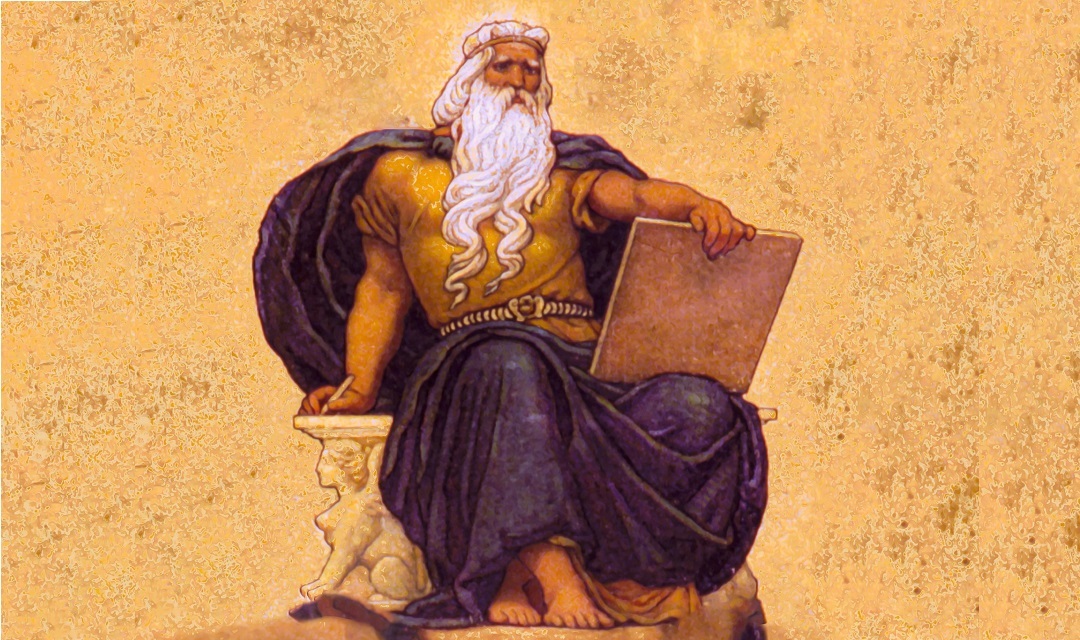This article first appeared in the Christian Research Journal, volume 36, number 01 (2013). The full text of this article in PDF format can be obtained by clicking here. For more information about the Christian Research Journal, click here.
In an article published in USA Today titled, “As Atheists Know, You Can Be Good without God,”1 Jerry Coyne, a biologist and outspoken atheist, is disturbed that many Americans, including some prominent scientists, believe that our instinctive sense of right and wrong is “strong evidence for [God’s] existence.” Though Coyne appears to have no formal training in moral philosophy and theology, he ventures into moral philosophy to explain why this is clearly mistaken. His article is useful in that it highlights some common mistakes contemporary atheist writers make in their attempts to ground a secular ethic.
DIVINE COMMAND THEORIES OF ETHICS
It is necessary to understand accurately the position Coyne is criticizing before we consider the merits of his critique. The argument that our instinctive sense of right and wrong “is strong evidence for [God’s] existence” found its most important formulation in a 1979 article by Robert Adams. In it, Adams noted that we instinctively grasp that certain actions, like torturing children for fun, are wrong; hence, he reasoned, we are intuitively aware of the existence of moral obligations. According to Adams, the best account of the nature of such obligations is that they are commands issued by a loving and just God. Identifying obligations with God’s commands can explain all the features of moral obligation better than any secular alternative. Consequently, the existence of moral obligations provides evidence for God’s existence.2
It is important to note what Adams did not claim. Central to Adams’s argument is the distinction between the idea that moral obligations are, in fact, divine commands and the claim that one cannot recognize what our moral obligations are unless one believes in divine commands or some form of divine revelation. Adams illustrates this distinction with the now standard example of H20 and water.
Contemporary chemistry tells us that the best account of the nature of water is that water is, in fact, H20 molecules. This means that water cannot exist unless H20 does. However, it does not mean that people who do not know about or believe in the existence of H20 cannot recognize water when they see it. For centuries people recognized, swam in, sailed on, and drank water before they knew anything about modern chemistry.
This distinction has important implications. The claim that moral obligations are, in fact, commands issued by God does not entail that people must believe that God exists in order to be able to recognize right and wrong. These are separate and logically distinct claims. Affirming one does not commit one logically to affirming the other.
Second, Adams offers an account of the nature of moral obligations, not an account of what it is generally good to do. Actions such as giving a kidney to save a needy stranger can be good without being obligatory. For an action to be obligatory, it must be more than praiseworthy or commendable. Obligatory actions are things we are required to do, or things another person can legitimately demand us to do. Not doing so without an adequate excuse renders us blameworthy, and others can justifiably censure us, rebuke us, and even punish us. Failure to comply makes us guilty and in need of forgiveness.
Failure to grasp these distinctions leads many critics of divine command theories astray, and although I will not argue it here, many lines of argument Coyne makes are unsound due to a failure to make these distinctions. Here, however, I will focus on one argument Coyne gives that does not depend on this confusion: the Euthyphro dilemma.
THE EUTHYPHRO DILEMMA
Coyne argues, “Morality itself—either in individual behaviour or social codes—simply cannot come from the will or commands of a God. This has been recognized by philosophers since the time of Plato. Religious people can appreciate this by considering Plato’s question: Do actions become moral simply because they’re dictated by God, or are they dictated by God because they are moral? It doesn’t take much thought to see that the right answer is the second one.”
Coyne here appeals to a famous argument that purports to show that ethics (what is right and wrong) is independent of religion and provide a reason for rejecting a divine command theory of obligation. This argument is known as “the Euthyphro dilemma” or “Plato’s Euthyphro” and is named after a dialogue Plato wrote. The current version used against monotheistic religions, such as Christianity, Islam, and Judaism, is an adaptation (the original applied to polytheistic religions that believe in many gods). The argument is usually framed in terms of a rhetorical question: “Are actions wrong because God prohibits them, or does God prohibit them because they are wrong?” Whichever option is taken purportedly leads to trouble.
If one takes the second option, the claim that God commands actions because they are right, it would entail that rightness and wrongness exist independently of, and prior to, God’s commands. On the other hand, the first option, the claim that actions are wrong because God prohibits them, is alleged to be problematic. Coyne notes, “It doesn’t take much thought to see that the right answer is the second one. Why? Because if God commanded us to do something obviously immoral, such as kill our children or steal, it wouldn’t automatically become OK.”
Here, Coyne appropriates a line of argument ubiquitous in the literature: the objection that a divine command theory makes morality arbitrary. Anything at all could be deemed “right” as long as God commanded it, even theft or infanticide. Numerous other philosophers have raised the same objection. Robert K. Garcia and Nathan L. King’s comments are representative: “DCT [divine command theory] implies that it is possible for any kind of action, such as rape, to not be wrong. But it seems intuitively impossible for rape not to be wrong. So, DCT is at odds with our commonsense intuitions about rape.”3
This argument assumes that it is possible that God could command atrocious things such as rape or torturing people for fun. This assumption, however, seems very dubious. We need to remember that we are not talking about right or wrong as being based on the commands of just anyone; we are talking about God. In the literature on divine command ethics, a particular conception of God is typically being used. God is defined as omnipotent, omniscient, and morally perfect.
So, as the terms are defined, the claim that it is possible for God to command people to torture others for fun is true only if it is possible for a morally perfect person to command such an atrocious thing. But this is unlikely. The very reason critics cite examples such as torturing people for fun is because these actions are paradigms of conduct that no morally good person could ever entertain or endorse. Coyne seems vaguely aware of the response, stating, “Of course, you can argue that God would never sanction something like that because he’s a completely moral being, but then you’re still using some idea of morality that is independent of God.” Here he again falls into confusion. What his response shows is that people can have ideas about what counts as loving and just independently of their beliefs about God and His commands. This is true, but this does not show that moral obligations can exist independently of the commands of a loving and just God. As I noted above, the claim that moral obligations are, in fact, divine commands is distinct from the claim that one cannot recognize what our moral obligations are unless one believes in divine commands.
An obvious rejoinder to this response is provided by James Rachels. A divine command theory entails that “the doctrine of the goodness of God is rendered meaningless.”4 A person can only be morally perfect if that person has both moral duties and acts in accord with them. This means people can be morally good only if they have duties. However, according to a divine command theory, the wrongness of an action consists in its being forbidden by God; given that God does not issue commands to Himself, it follows that God has no duties. Consequently, a divine command theory implies that God is not morally perfect.
Rachels’s argument seems logical: if we are going to understand God’s goodness in terms of God having duties that He consistently fulfils, then a divine command theory cannot account for God’s goodness. However, why must the phrase “God is good” be explained in terms of God having duties? I do not see why it should.
Many theologians and philosophers have suggested an alternative: God’s goodness should be understood in terms of God having certain character traits. To claim God is good is to claim that He is truthful, benevolent, loving, gracious, merciful; it is to hold that He is opposed to certain actions such as murder, rape, torturing people for fun, and so on.
Now, even if God does not have duties, it does not follow that He cannot have character traits such as these. It is true that God is not under any obligation to love others or to tell the truth, or what have you, but that does not mean he cannot love others or tell the truth. God does not have to have a duty to do something in order to do it.
THE EUTHYPHRO DILEMMA FOR EVOLUTIONARY ETHICS
Coyne’s appeal to the Euthyphro argument therefore fails. Instead of leaving matters there, however, I want to close by showing, somewhat ironically, that Coyne’s own secular account of morality falls prey to the Euthyphro dilemma. After claiming that moral obligations cannot be constituted by God’s commands, Coyne offers an alternative: morality comes from evolution—humans evolved a capacity to instinctively feel that certain actions are wrong.
However, Plato’s question is equally applicable here. One can ask, “Are actions wrong because we have evolved a disposition to condemn them, or do we condemn them because they are wrong?” If the latter is the case, then actions are wrong prior to, and hence independently of, evolution, and so ethics is independent of evolution.
To avoid this implication, Coyne must adopt the first option: actions are wrong because we have evolved an instinctive disposition to condemn these actions. The problem is this option makes morality arbitrary. Couldn’t evolution have produced rational beings that felt that infanticide and theft were obligatory or that rape was, in certain circumstances, OK? As Darwin himself noted, “If men were reared under precisely the same conditions as hive-bees, there can hardly be a doubt that our unmarried females would, like the worker-bees, think it a sacred duty to kill their brothers, and mothers would strive to kill their fertile daughters, and no one would think of interfering.”5
Coyne faces a dilemma. If the fact that it is possible for God to have commanded that infanticide is permissible proves that morality is not based on God’s commands, then the fact it is possible for evolution to have produced rational beings that feel infanticide is permissible must prove that morality is not dependent on evolution.
Believers in God can avoid this conclusion for the reasons I pointed to above: it is unlikely that a loving and just person could command actions such as infanticide or rape. Evolution, however, guided only by the impersonal forces of nature, is not subject to such constraints. Coyne’s argument does not refute Adams’s position, but it does appear to refute his own.
AN IMPOSSIBLE ARGUMENT
I have singled out Jerry Coyne’s recent discussion of God and morality for criticism; yet, as I noted above, the mistakes he makes are common in many discussions of God and morality presented not only in philosophical literature but also in more popular forums. With the rise of the new atheism, the Euthyphro dilemma is frequently being cited as a kind of silver bullet against attempts to ground morality in God. The Euthyphro, however, as an argument fails: it relies on the false assumption that a loving and just omniscient being could command actions that are impossible for a loving and just person to endorse. Such an assumption is false and obviously so. Moreover, the attempts to ground morality in evolutionary biology, often proposed by new atheist writers, ironically fall prey to the very objections they propose against a divine command theory.
Matthew Flannagan, Ph.D., has authored various articles and contributed to various books, including Come Let Us Reason: New Essays in Christian Apologetics, edited by Paul Copan and William Lane Craig (B&H Academic, 2012) and True Reason: Christian Responses to the Challenge of Atheism, edited by Tom Gilson and Carson Weitnauer (Patheos Press, 2012). He and his wife Madeleine have a well-visited blog, www.mandm.org.nz.
NOTES
- Jerry Coyne, “As Atheist’s Know, You Can Be Good without God,” USAToday.com, July 31, 2011, http://usatoday30.usatoday.com/news/opinion/forum/2011-07-31-atheism-moralityevolution-religion_n.htm.
- Robert Adams, “Moral Arguments for Theistic Belief,” in Rationality and Religious Belief, ed. C. F. Delaney (Notre Dame, IN: University of Notre Dame Press, 1979), 116–21.
- Robert K. Garcia and Nathan L. King, “Introduction,” in Is Goodness without God Good Enough? A Debate on Faith, Secularism, and Ethics, ed. Robert K. Garcia and Nathan L. King (Lanham, MD: Rowan and Littlefield Publishers, 2008), 11, emphasis in original.
- James Rachels, Elements of Moral Philosophy (New York: Oxford University Press, 1986), 42.
- Charles Darwin, The Descent of Man and Selection in Relation to Sex, 2nd ed. (New York: D. Appleton and Company, 1909), 100.









